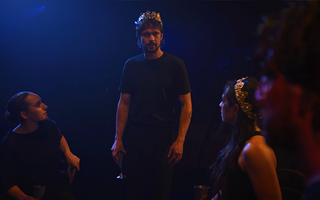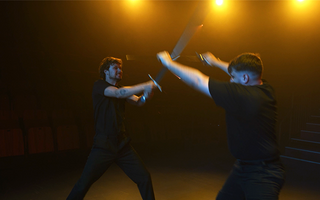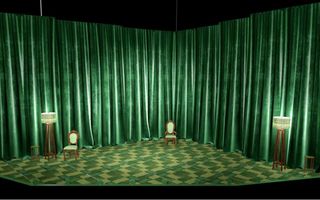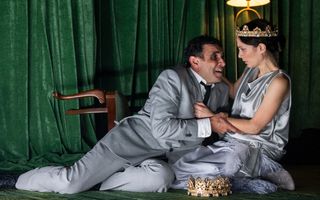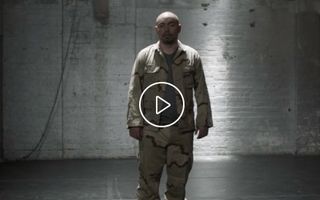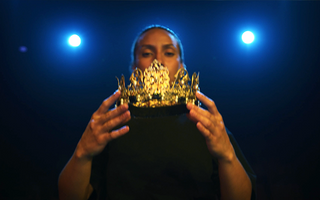 Watch
Watch
Complete Activity: The Language of Ambition (Lady Macbeth). Now read Macbeth’s soliloquy below from Act 1 Scene 7:
MACBETH
If it were done when ‘tis done, then ‘twere well
It were done quickly: if the assassination
Could trammel up the consequence, and catch
With his surcease success; that but this blow
Might be the be-all and the end-all here,
But here, upon this bank and shoal of time,
We’d jump the life to come. But in these cases
We still have judgment here; that we but teach
Bloody instructions, which, being taught, return
To plague the inventor: this even-handed justice
Commends the ingredients of our poison’d chalice
To our own lips. He’s here in double trust;
First, as I am his kinsman and his subject,
Strong both against the deed; then, as his host,
Who should against his murderer shut the door,
Not bear the knife myself. Besides, this Duncan
Hath borne his faculties so meek, hath been
So clear in his great office, that his virtues
Will plead like angels, trumpet-tongued, against
The deep damnation of his taking-off;
And pity, like a naked new-born babe,
Striding the blast, or heaven’s cherubim, horsed
Upon the sightless couriers of the air,
Shall blow the horrid deed in every eye,
That tears shall drown the wind. I have no spur
To prick the sides of my intent, but only
Vaulting ambition, which o’erleaps itself
And falls on the other.
(Macbeth, Act 1, Scene 7)
1) As you did with Lady Macbeth’s speeches, ensure that you fully understand the meaning of all words and phrases. Look any words up that you do not understand, then answer the questions below:
2) What type of images does Macbeth use? List some of the comparisons he makes.
3) How do these images differ from the ones Lady Macbeth uses?
4) What arguments does he propose for and against Killing Duncan?
5) What does he fear? Use examples from the text.
6) In which moments does he display ambition and when does he show fear?
7) What does he understand about himself?
8) What is the conclusion that Macbeth comes to at the end of the monologue?
9) Extension – If you also want to perform Macbeth’s speech as a dramatic monologue, remember that he is someone who is working through a series of ideas, coming up with them one at a time. Watching the character make discoveries is always more interesting than watching someone who already has it figured out. Have fun!
